CBN Dosage For Sleep
Summarize
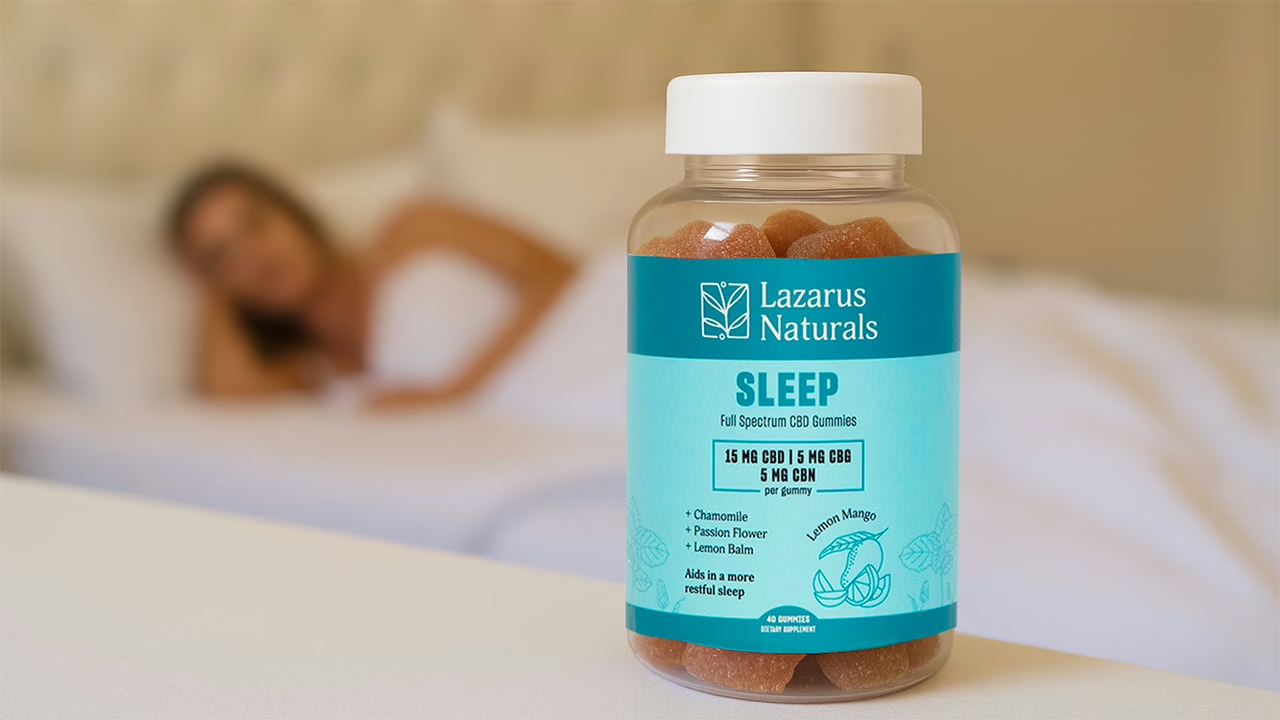
Promising clinical research suggests that a nightly dose of 20 mg of CBN, with or without CBD, may potentially enhance sleep quality. CBN may reduce the number of times you awaken during the night, leading to a more restful sleep.
This offers hope for those struggling with sleep issues, providing a potential solution to improve their overall sleep pattern. Building on this emerging science, you can experiment to find the ideal CBN dosage that works best for your sleep needs.
Factors That Affect Your CBN Dosage
There is currently no established CBN dose guide. However, research to date has shown that CBN interacts with the endocannabinoid system (ECS). It has a much lower affinity for CB1 receptors compared to THC and a higher affinity for CB2 receptors. The ECS system regulates sleep-wake cycles. CBN has been found to act like a sedative in some studies through its interaction with CB1 and CB2 receptors. A study found that doses of 10 mg/kg and 100 mg/kg of CBN significantly increased the percentage of non-rapid eye movement (NREM) sleep.
Since CBN has a weak interaction with CB1 receptors, the effect of sedation or improved sleep quality is highly dose-dependent. Like anything consumed, there are many factors affecting the ideal CBN dosage for sleep. The following factors influence the amount of CBD mg for sleep you should take.
➥ Body weight
A bigger or heavier person may need a larger dose than a smaller or lighter individual. All cannabinoids are fat-soluble. A higher amount of body fat impacts the distribution and metabolism of CBN.
➥ Metabolism
CBN undergoes the first-pass metabolic process in the liver, creating metabolites. The metabolites may have different potencies and different affinities for the endocannabinoid system receptors compared to CBN. There is limited research suggesting that the CBN metabolites have a greater effect than CBN.
➥ Tolerance
If you take CBN for an extended period, eventually you may need to take higher doses to experience the same effect. However, there are also cases of reverse tolerance. This means that a person regularly taking cannabinoids may reach a point where the dose may be smaller to achieve the desired effects. Understanding this phenomenon is important when determining the ideal CBN dosage for sleep. Each person is unique.
➥ Method of consumption
CBN gummies and capsules have a lower bioavailability than CBN oil taken sublingually. More CBN is absorbed into the bloodstream when it does not have to go through the digestive system.
➥ Entourage effect
CBN products may contain other cannabinoids like CBD and CBG, plus ingredients like melatonin. The entourage effect is the theory that combining CBN with other cannabinoids will produce a synergistic effect that is stronger than the effect of taking a single cannabinoid.
➥ Potency
CBN products have different potencies. Potency refers to the amount of CBN required to produce a specific effect. There is a dose-response relationship curve that shows a higher potency product will have an impact at a lower concentration.
As a starting point, a safe CBN dosage for beginners is 10-20 mg. However, a study has shown successful use of 30 mg and 300 mg of CBN. Individuals weighing over 200 pounds may want to start with 15-25 mg of CBN, while someone weighing less would start with 10-20 mg. The amount of CBN consumed can be gradually increased until the desired effects are achieved.
CBN Dosage Chart
| Body Weight (lbs) | Suggested Starting Dose (mg) | Common Effective Range (mg) | Maximum Observed Range (mg) |
|---|---|---|---|
| <130 | 5–10 mg | 10–15 mg | Up to 20 mg |
| 130–200 | 10–15 mg | 15–20 mg | Up to 30 mg |
| >200 | 15–20 mg | 20–25 mg | Up to 30–50 mg (if needed) |
💡 Always start low and gradually increase your dose until the desired sleep effect is achieved. Consult a healthcare provider for personalized guidance, especially if taking other medications.
This content is for informational purposes only and does not constitute medical advice. Individual responses to CBN may vary. Do not use CBN to diagnose, treat, cure, or prevent any disease.
As a starting point, a safe CBN dosage for beginners is 10-20 mg. However, a study has shown successful use of 30 mg and 300 mg of CBN. Individuals weighing over 200 pounds may want to start with 15-25 mg of CBN, while someone weighing less would start with 10-20 mg. The amount of CBN consumed can be gradually increased until the desired effects are achieved.
CBN vs. CBD for Sleep: Which is Better?
CBD and CBN may help people fall asleep faster and sleep longer. Both cannabinoids interact with the endocannabinoid system. There is significantly more research on CBD and sleep compared to CBN and its effects on sleep. For example, a comprehensive review of 34 studies on the therapeutic value of CBD for managing insomnia found that CBD alone may help alleviate sleep disorders.
Some of the limited studies on CBN and sleep found that CBN taken with THC can make individuals feel drowsy. CBN interacts with the ECS receptors in a similar manner to THC but in a much weaker manner. That is why CBN could only be mildly psychoactive. One study reported that participants taking 50 mg of CBN showed significant improvements in sleep compared to the group taking a placebo.
Since people respond differently to cannabinoids, there is not enough research to say that CBN or CBD for sleep is the best choice. It is best to try both cannabinoids to determine which one works better. Other options include taking an isolate CBN product or a CBN product that contains some CBD, a legal amount of THC (0.3% or less), and other cannabinoids.
When and How to Take CBN for Best Results?
The available products include CBN gummies, which are edibles and take longer to produce effects; capsules, which are swallowed and also take longer to produce effects; isolates, which are pure CBN; and oil. The CBN oil or tincture taken sublingually will work the fastest. The CBN and other cannabinoids in the oil are absorbed directly into the bloodstream through the glands. By holding the oil drops under the tongue for up to one minute, the effects may be felt within 30 minutes.
The effects take longer to experience when consuming CBN gummies or capsules because the cannabinoids must go through the digestive system and be metabolized in the liver. It can take up to an hour for the CBN to work.
For optimal results, take CBN 30-60 minutes before bedtime. Take the CBN at the same time each night to achieve consistent results.
What Are CBN’s Potential Side Effects?
Most CBN research studies have been animal trials, so the information about potential side effects is limited. Based on current research and anecdotal evidence, the possible side effects include the following.
- There may be excessive drowsiness if combined with THC or when consumed at higher doses, so it is essential to take CBN at the right time to promote sleep.
- Appetite stimulation is possible, as indicated by an older animal study. Rats fed CBN exhibited increased appetite behaviors.
- Cannabinoids can reduce salivary flow and lead to xerostomia (dry mouth).
- There may be potential interactions with medications also metabolized by the liver.
- Some people have reported experiencing lightheadedness or dizziness after taking CBN.
Although there is not enough research to pinpoint how much is too much CBN, it’s essential to monitor the effects of any amount you take. Also, if you are taking too much, there are likely to be noticeable side effects, like dizziness or issues with the liver.
Sources
- https://pubmed.ncbi.nlm.nih.gov/37796540/
- https://www.nature.com/articles/s41386-024-02018-7
- https://pmc.ncbi.nlm.nih.gov/articles/PMC11736144/
- https://www.milehighlabs.com/comprehensive-review-of-cannabinol-cbn-its-synergies-with-other-cannabinoids-mechanisms-of-action-and-benefits-supported-by-clinical-data/
- https://pmc.ncbi.nlm.nih.gov/articles/PMC11870048/
- https://pmc.ncbi.nlm.nih.gov/articles/PMC10058560/
- https://pubmed.ncbi.nlm.nih.gov/36149724/
- https://academic.oup.com/sleep/article/47/Supplement_1/A177/7654563
- https://pubmed.ncbi.nlm.nih.gov/22543671/
- https://pmc.ncbi.nlm.nih.gov/articles/PMC8347083/
Share this post


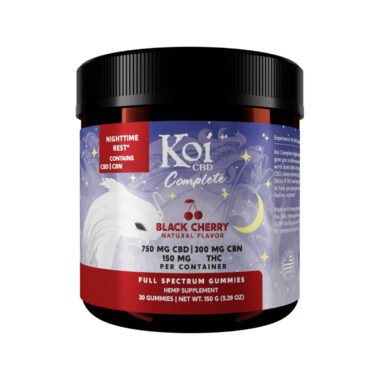
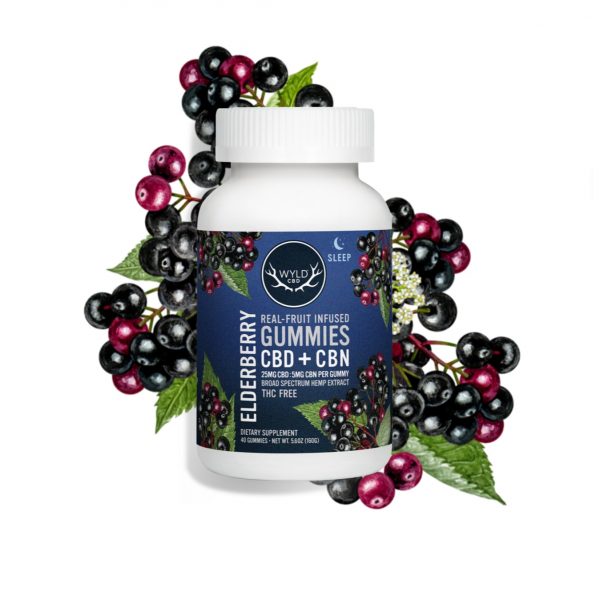
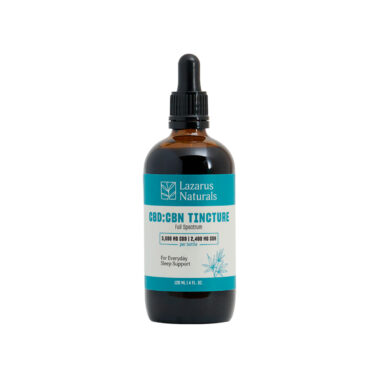
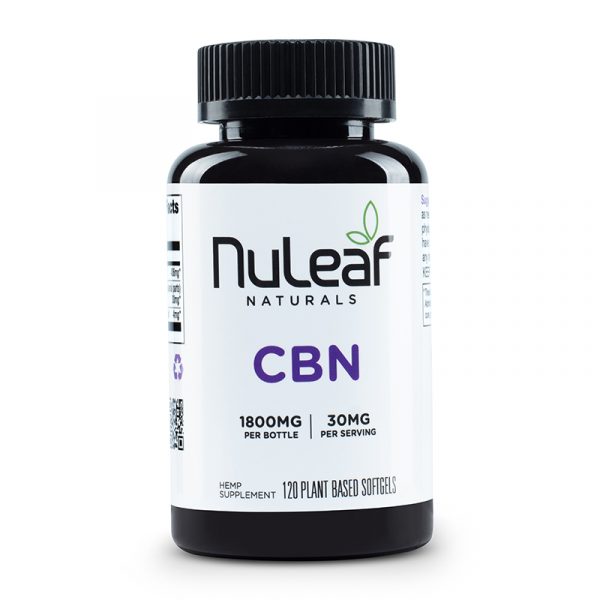
0